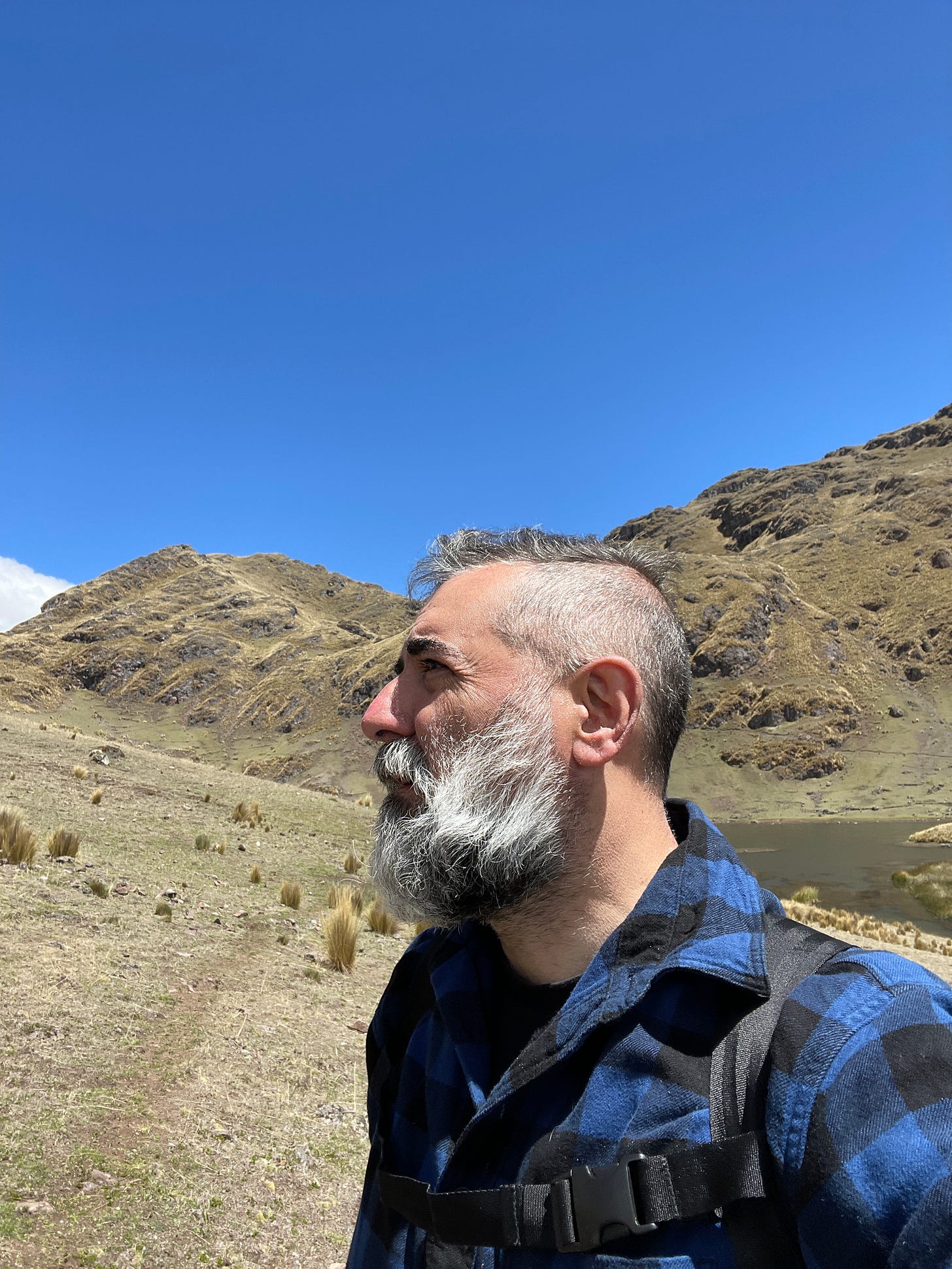Knowing When to Quit & When to Persevere
How to Make Informed Decisions: an Entrepreneur's Guide
I'm Manuel Saez, I write to help founders master emotional intelligence to make decisions with clarity and confidence 🌻 EQ coach, 2X-founder & award-winning designer ➜ I love fixing old motorcycles 🛵 🏍
Reading time: 8 min.
Contents:
Knowing When to Persevere and When to Quit
Recognizing the Signs to Quit
The Benefits of Perseverance
Overcoming Cognitive Biases
Seeking External Feedback and Support
Evaluating Impact on Well-Being
The Role of Emotional Intelligence in Decision-Making
After sixteen years as a founder, I've realized that one of the toughest decisions is knowing when to quit and when to keep going. Anyone doing meaningful work will eventually face this dilemma.
Picture yourself at a fork in the road, with one path leading to relentless pursuit and the other to a strategic retreat. How do you decide which way to go?
The answer isn't just about wisdom; it's about understanding our emotions and the situation we're in.
It's about listening to your gut, looking at the facts, learning from setbacks, and confidently adjusting your path.
Let's discuss the fine line between perseverance and quitting and figure out how to make choices that align with our long-term vision with insight and courage.
Knowing When to Persevere and When to Quit
First off, let's define what we're talking about here.
Perseverance is about resilience, about staying the course even when it gets tough. It's that drive to keep going despite setbacks, fueled by a belief in your vision.
On the other hand, quitting isn't just giving up—it's a strategic decision to stop investing time and resources into something that is no longer yielding results or aligning with your goals.
This distinction is crucial because it sets the stage for how we approach challenges in our entrepreneurial journey. Knowing when to pivot or pull the plug can make all the difference between success and failure.
To recognize when to persevere, look for signs of progress, however small. Are you receiving positive feedback from your target market? Are there clear indicators that your efforts are beginning to pay off? These signs can bolster your resolve and justify continuing on your current path.
Conversely, to identify when to quit, assess whether you're repeatedly hitting roadblocks despite numerous attempts to course-correct. If key metrics and feedback consistently show a lack of viability, it might be time to consider quitting.
Understanding these signals helps you make strategic decisions that align with your long-term vision and goals, ensuring that your efforts are directed toward the most promising opportunities.
Recognizing the Signs to Quit
Have you ever felt stuck in a "Groundhog Day" scenario, where you keep doing the work but see no real progress? Recognizing when it's time to quit can be challenging, but clear signs indicate it might be time to reassess your path.
First, look at your key performance indicators (KPIs) and metrics. Suppose you consistently fail to meet your goals despite numerous adjustments and efforts. In that case, it might be a sign that the current approach needs to be fixed.
Another indicator is persistent market rejection—if your product or service isn't gaining traction or feedback indicates a fundamental flaw, it might be time to pivot.
Additionally, consider your emotional and physical well-being. Constant stress, lack of motivation, and burnout are red flags that continuing on the same path may harm your health and productivity.
I've been there myself, pouring energy into a project that wasn't gaining traction.
I could only get clarity when I stepped back and looked at the big picture without emotional attachment.
This allowed me to reassess and redirect my efforts toward something more promising.
Quitting isn't about giving up on your dreams but reallocating your resources wisely. By recognizing these signs and making strategic decisions, you can make space for new opportunities that better align with your vision and values.
The Benefits of Perseverance
Now, perseverance—it's a trait that every successful entrepreneur I know embodies. It's about pushing through the "deep valley of death," those inevitable challenges that test your resolve.
I've seen firsthand how persistence pays off. It's about more than immediate results; it's about staying committed to your goals, even when the journey gets tough.
In my entrepreneurial journey, I've faced moments where perseverance made all the difference. With my second startup, we encountered a significant hurdle early on: we couldn't sell the electric bikes we had innovatively designed. Selling through bike shops seemed only possible with a strong brand or developed distribution channels.
It was a make-or-break moment. Instead of giving up, we dug deep into our vision of making e-bikes accessible for daily commutes.
We pivoted to a subscription model, offering people a convenient and affordable way to use e-bikes without the hefty upfront cost. This shift wasn't just a quick fix but a strategic adaptation to the market's needs.
By focusing on subscription-based mobility solutions, we not only survived but thrived. Our customer base grew, and we established ourselves as pioneers in the urban mobility sector.
That experience taught me perseverance isn't just about stubbornly sticking to a failing plan; it's about listening to market feedback, being willing to pivot, and evolving in response to challenges.
Perseverance is about maintaining clarity of vision while remaining flexible in execution, ultimately driving sustainable growth and impact.
Overcoming Cognitive Biases
Cognitive biases are those sneaky mental shortcuts that can cloud our judgment.
The sunk cost fallacy, for instance, is a common trap for entrepreneurs. After all, you've invested time, money, and effort into a project, so quitting feels like admitting defeat.
But here's the thing: those sunk costs are in the past. The decision to continue should be based on future potential, not past investments.
I've had to learn to recognize these biases in myself and others.
It's about stepping back, reassessing the situation objectively, and making decisions based on what's best for the business—not ego, fear, or emotion.
How to Overcome Cognitive Biases:
Reframe the Decision: Focus on future outcomes rather than past investments. Ask yourself: Would I make the same decision if I were starting fresh today?
Seek External Perspectives: Consult mentors, advisors, or peers who can offer unbiased opinions. They can provide fresh insights and challenge your assumptions.
Look at the Data: Define clear metrics or benchmarks for success and regularly evaluate your progress against them. This helps you stay focused on objective outcomes rather than emotional attachments.
By consciously addressing these biases and approaching decisions with clarity and objectivity, you can navigate challenges more effectively and make decisions that align with your long-term goals.
Seeking External Feedback and Support
The terms "self-made millionaire" or "solopreneur" are often misguided. No entrepreneur truly succeeds in isolation.
Seeking external perspectives—from mentors, peers, or coaches—can provide invaluable insights critical for growth.
I've been fortunate to have people in my circle who challenged my assumptions and offered fresh perspectives on critical decisions, significantly shaping my journey.
Finding the right mentor or coach isn't just about their credentials; it's about finding someone who understands your vision, has been through a similar journey, and has the emotional awareness to provide honest, constructive feedback.
These external viewpoints can reveal blind spots, highlight opportunities you might have missed, and strengthen your decision-making process.
This is not to say that you will do what they suggest. They are just one more data point in your decision-making process. Incorporating external perspectives can lead to more robust outcomes and foster personal growth.
If you ever need to talk to someone about your challenges or decisions, I'm here to help. You can schedule a call with me here to explore how to navigate your entrepreneurial journey together.
Evaluating Impact on Well-Being
I learned the hard way that entrepreneurship can be all-consuming, but it shouldn't come at the cost of your well-being.
Ignoring mental and physical health in pursuit of success is a recipe for burnout. I've been there and seen people push themselves to the brink, only to realize the toll it takes too late.
When faced with a decision between quitting and persevering, your well-being should be at the top of the list. Success can not be achieved if you are not healthy.
Here's why your personal well-being is the number one measure of success at the end of the day:
➜ Longevity and Resilience: Maintaining good health ensures you have the energy and resilience to navigate the ups and downs of entrepreneurship over the long haul. It's not just about surviving; it's about thriving in the face of challenges.
➜ Creativity and Innovation: A rested mind is more creative and innovative. Taking breaks and prioritizing self-care allows you to approach problems from fresh perspectives and develop novel solutions.
➜ Quality of Life: Success isn't just about financial gains or business milestones. It's about enjoying a fulfilling life outside work, nurturing relationships, and pursuing personal passions. Your well-being directly impacts your overall quality of life.
The Role of Emotional Intelligence in Decision-Making
Emotionally intelligent individuals possess a profound self-awareness that significantly impacts decision-making. Understanding one's strengths, weaknesses, and motivations empowers informed choices crucial for entrepreneurial success.
In my journey, two practices have profoundly enhanced my self-awareness.
First, reflective practices such as journaling and meditation provide invaluable insights into my thoughts, emotions, and decision-making patterns.
Journaling allows me to capture fleeting thoughts and emotional responses, revealing recurring themes and areas for personal growth. Conversely, meditation cultivates a calm mind, fostering clarity and awareness of my inner workings without judgment.
Secondly, seeking feedback from trusted mentors and advisors has been instrumental. They offer constructive perspectives and highlight blind spots I may overlook. Their insights challenge my assumptions and provide a broader view of how my decisions impact others and align with my long-term goals.
By integrating these practices into my routine, I continuously deepen my self-awareness. This ongoing journey of introspection enriches my entrepreneurial path, guiding me toward decisions that resonate with my values and contribute to sustainable success.
Understanding when to quit versus persevere is crucial for entrepreneurial success. It's about learning from setbacks, adapting to change, and remaining flexible while staying true to your vision.
As entrepreneurs, navigating uncertainties requires cultivating self-awareness, seeking external perspectives, and prioritizing well-being to make informed decisions.
Key Takeaways:
Understand the Dilemma: Make strategic choices that align with your long-term vision and goals.
Recognize When to Quit: Sometimes quitting is a strategic decision, allowing for better opportunities.
Benefits of Perseverance: Push through challenges, adapt to feedback, and maintain a flexible vision.
Overcome Cognitive Biases: Avoid letting past investments cloud your judgment with data-driven choices.
Prioritize Well-Being: Good health ensures longevity, creativity, and a fulfilling life.
Enhance Self-Awareness: Journaling, meditation, and mentor feedback guide informed decisions.
Seek External Support: External perspectives can provide invaluable insights for robust decision-making.
Sending you good vibes 🌻
Manuel Saez






